Re:co Symposium
Re:co is a unique, experiential gathering of the specialty coffee industry designed to explore the emerging future so that we may effectively–and collectively–respond to its opportunities. Watch and listen to presentations from previous Re:co events below, and learn more about the program at recosymposium.org.
Re:co 2022 | Boston, MA, USA
In late 2018, scientists rediscovered Coffea stenophylla— a species unrelated to either Arabica or robusta—in the wild in Sierra Leone, and later confirmed century-old reports of its high cup quality.
Over the past 30 years, the concurrent internet-led waves of coffee and globalization have had a profound impact on our coffee consumption habits.
While the use of wild coffees is still years away from commercialization, another coffee species already makes up 40% of coffee's global production: Coffea robusta.
In the face of climate change and advances in technology, what is “specialty coffee”?
The current coffee processing revolution offers us means to improve the live of coffee growers and processors not just through direct product improvement, but through a new, powerful narrative that can drive more respect, and value, back to producers.
As more consumers come to the coffee-laden table, our collective preferences haven’t just shifted; they’ve fragmented.
Make a quick list of the countries you know are experiencing exponential growth of coffee consumption and a blossoming specialty coffee scene: does it include Israel? If not, it should.
In addition to being the world’s leading producer of robusta, Vietnam also produces more arabica than Kenya or El Salvador – so why don’t we talk about it more?
We may be familiar with Ethiopia as the birthplace of coffee, but what can we learn about who engages with coffee and when by more deeply exploring its coffee culture?
As specialty coffee reaches new markets—and the number of individuals making these choices increases—it becomes increasingly enmeshed with our sense of identity.
As a move towards the "functional" grips the beverage sector, how might this trend shape opportunities for specialty coffee products and consumers?
Specialty coffee, although often burdened by coffee's "commodity" status, still needs to compete in the premium market--but is there a way to move beyond?
Despite (most) of our return to coffee spaces, coffee's unprecedented move online during lockdowns forced social media accounts to pivot from a tool to get people in seats to a destination in and of itself.
Do we really understand the impact of the attributes-based definition of specialty coffee on what is now "specialty"?
"It's what's in the cup that matters," right? But is that actually true?
Coffee's interest in understanding multimodal perception on coffee experiences has most recently focused on cup shape, size, and weight or environmental ambiance like color, music, and texture.
As the word "sustainable" continues to grow in importance to consumers, it is being used in many different ways.
Re:co Virtual 2021
In 2021, Re:co explored different perspectives on this moment in specialty coffee across multiple sessions, helping leaders come together to address uncertainty and build a stronger future.
SCA CEO Yannis Apostolopoulos welcomes attendees to Re:co’s 2021 program and introduces the first session of four: A Glimpse of the Future.
Dr. Selena Ahmed shares the findings of a recent meta-analysis, the first of its kind, exploring the impact of climate change on coffee quality.
Bill Murray of the US National Coffee Association offers seven signs that point towards our sector’s future post-pandemic.
If our industry goal is to have a sustainable coffee supply, we need to take an honest look at relationships, value generation, and appropriation dynamics between origins and brands.
How can we know we’re paying an equitable price for coffee? Grayson Caldwell explores the idea of verified living income.
Jeanine Niyonzima-Aroian shares a business model to help build more sustainable communities.
Melissa Schweisguth shares examples of the work done by United States Agency for International Development in the coffee sector.
Jenn Rugolo introduces the third session of Re:co’s 2021 program, Innovating to Meet Opportunity.
In this panel, we introduce a new approach: profit-sharing. Join us for a conversation with two coffee entrepreneurs who both (independently!) stumbled upon this business model and use it to get as much profit as possible back to origin, while still making ends meet. We will discuss how profit-sharing works, where it is likely to be successful, and when it can be taken to scale.
Re:co Virtual 2020
René León-Gómez presents “A Perfect Storm: Navigating the Effects of COVID-19 on Coffee Producers” at Re:co 2020.
This session lays out a path to build a more resilient specialty coffee industry by respecting those relationships, workers, and the community at its core, whose vulnerabilities and value have been laid bare.
Vava Angwenyi speaks on Race, Specialty Coffee, and the Urgent Need for Progress at Re:co 2020.
Mbula Musau speaks on Race, Specialty Coffee, and the Urgent Need for Progress at Re:co 2020.
Many of us in coffee innovate in an attempt to improve the livelihoods of coffee producers: from Direct Trade to social programs, from certifications to traceability. But how do we know if these innovations work?
In this talk, Kim Elena Ionescu introduces the SCA's recently debuted Coffee Systems Map.
Chris McAuley and Cydni Patterson brew their favorite coffees together and talk about their shared experiences as young Black folks in the coffee industry.
In this talk, we'll explore the assumptions behind this time-tested tool, and learn about new research that tests the foundations of coffee brewing, sensory evaluation of coffee, and how to measure it all.
In this talk, Dr. Croijmans will go into recent studies that have looked at wine and coffee language, offer suggestions to adapt online coffee sales, and discuss open questions to align coffee descriptions to what consumers expect, informed by insights from wine and coffee research.
Due to distancing and mobility restrictions caused by the COVID-19 pandemic, specialty coffee consumption has been shifted from shops to home. Which marketing tools could be relevant to influence the coffee drinking experience outside the coffee shop?
How did COVID-19 affect market shifts at the start of the pandemic, and what implications does this have for the future?
How can the specialty coffee industry demonstrate its ethos through exciting integrated marketing initiatives?
COVID-19 has changed both consumer buying patterns and how large retailers are approaching their offerings – a phenomenon affecting not just coffee, but all beverages.
We asked industry experts to reimagine our interactions with coffee in three years and to share their thoughts with the industry. It is at once optimistic and a cautionary tale.
Re:co 2019 | Boston, MA, USA
Today, we’re very happy to present the second episode of “Growing Consumption: Letting Go of Sameness,” a session recorded at Re:co Symposium this past April.
As the majority of specialty coffee consumption lies in the US, EU, and East Asia, “producing” countries have solely – and strategically – focused export, indenting to increase demand in “consuming” countries.
Today, we’re very happy to present the first episode of “Growing Consumption: Letting Go of Sameness,” a session recorded at Re:co Symposium this past April.
Session Host Phyllis Johnson begins with a study by the National Coffee Association indicating that specialty coffee consumption is slowing among our current target market before bringing Red Bay Coffee’s Keba Konte to the stage.
Today, we’re very happy to present the fifth and final episode of “Value Chains: Transparency and Market Linkages,” a session recorded at Re:co Symposium this past April.
Insurance is a common financial instrument, but often misunderstood. Today’s speaker, Greg Low, asks: What is insurance’s role in building resilient business models?
For over 20 years, the Coffee Quality Institute (CQI) has worked to improve coffee quality through a diverse set of programs addressing foundational issues affecting the value chain.
Today, we’re very happy to present the fourth episode of “Value Chains: Transparency and Market Linkages,” a session recorded at Re:co Symposium this past April.
Today, we’re very happy to present the third episode of “Value Chains: Transparency and Market Linkages,” a session recorded at Re:co Symposium this past April.
Today, we’re very happy to present the second episode of “Value Chains: Transparency and Market Linkages,” a session recorded at Re:co Symposium this past April.
Through the story of McDonald’s’ dedication to achieving full sustainability in their business’ coffee value chain, Michelle Johnson challenges and explores our ideas of what sustainability in coffee means—and who is truly setting the bar for creating a future for the industry.
Published every four years, the Coffee Barometer highlights emerging trends and provides a critical look at progress made by the coffee sector on sustainability.
Sharing results from robust statistical research conducted by Enveritas across 20 countries, David looks anew at coffee industry facts as we know them.
World Coffee Research, together with dozens of partners, is building an unprecedented network of global on-farm trials to discover which varieties and agricultural practices are most profitable for coffee producers around the world.
Merling Preza, quien tomó parte en la fundacion de PRODECOOP en el año 1993 y que ahora se desempeña como su Director General, habla con Kim Elena Ionescu, Directora de Sostenibilidad de la SCA, sobre la experiencia de los agricultores en Estelí, Nicaragua y las áreas circundantes durante la crisis de precios de la decada del 2000 y durante la crisis actual.
Merling Preza, who was one of the founders of PRODECOOP in1993 and now serves as its General Manager, reflects on the experience of farmers in Estelí, Nicaragua, and the surrounding areas during the current price crisis, the crisis of the early 2000s, and the years in between.
Chad Trewick moderates a panel featuring Réne León Gómez, Herbert Peñalosa, Peter Dupont, and Michelle Bhattacharyya on the subject of farmer profitability.
SCA Lead Scholar Taya Brown worked with several communities of smallholder coffee farmers in Yepocapa, Guatemala to better understand the obstacles they face in uptake of new technologies.
Dr. Janina Grabs of the University of Munster and visiting researcher at Yale University, argues that there is a need to closely consider the scale at which different initiatives may create positive change.
There is a lot of discussion about coffee markets these days, and a desire to discuss both the micro- and macro-economic implications.
Vanusia Nogueira, Executive Director of the Brazilian Specialty Coffee Association, explains the motivations behind the first World Coffee Producers Forum event, the organization of the Forum’s committee, and what they’ve achieved over the past 18 months of work.
In his opening remarks at this year’s Re:co Symposium, Executive Director Emeritus Ric Rhinehart set the stage for two days of learning, collaborating, and acting to address the coffee price crisis with his “dire warning speech.”
Peter introduces The Specialty Coffee Transaction Guide, which relies on an expanding group of roasters, importers, exporters, and others who donate contract data covering specialty coffee transactions from recent harvests.
How does the plant’s blueprint for what’s possible—its genetics—interact with complex and changing environments to produce flavor in the cup?
Re:co 2018 | Seattle, WA, USA
In this final panel of the 2018 Re:co Symposium in April, Nick Cho asks the question: how do we respond to the challenges that were identified during Re:co this year? To find some possible answers, he leads a discussion between three founders of solutions-oriented businesses (Isabella Raposeiras, Roaster, Founder, and Owner of Coffee Lab; Ian Williams, Owner of Deadstock Coffee; Pamela Chng, Founder of Bettr Barista) as they explore the approaches they’re using to push specialty coffee forward.
This is the third and final episode of “The State and Future of the Business of Coffee,” a session recorded at Re:co Symposium this past April. This session gathered business leaders in Specialty Coffee to discuss the ways that the specialty coffee trade has changed in the past decade, the challenges businesses face today, and how we might prepare for the future.
This is the second episode of “The State and Future of the Business of Coffee,” a session recorded at Re:co Symposium this past April. This session gathered business leaders in Specialty Coffee to discuss the ways that the specialty coffee trade has changed in the past decade, the challenges businesses face today, and how we might prepare for the future.
On this episode of the Re:co Podcast, we are pleased to welcome Janice Anderson, CEO of Premium Quality Consulting, LLC. At Re:co Symposium in April, Janice shares her research into the future of specialty coffee consumption, with a particular focus on the up-and-coming Generation Z.
This is the opening panel of the “The State and Future of the Business of Coffee”, a session at Re:co Symposium this year. This session gathered business leaders in Specialty Coffee to discuss the ways that the specialty coffee trade has changed in the past decade, the challenges businesses face today, and how we might prepare for the future.
Led by Nicholas Cho, a panel of Tracy Ging, Josh Owen, Teresa von Fuchs, and Dan McCloskey took the stage to debate and discuss an important question: are we in a specialty coffee roaster bubble?
This is the second episode of “Evolution of Innovation: How New Ideas Will Shape Specialty Coffee,” a session recorded at Re:co Symposium this past April. This session offered a glimpse of new ideas in coffee from some leading thinkers in specialty coffee and a discussion of how they are likely to shape the future of our industry.
This is the second episode of “Evolution of Innovation: How New Ideas Will Shape Specialty Coffee,” a session recorded at Re:co Symposium this past April. This session offered a glimpse of new ideas in coffee from some leading thinkers in specialty coffee and a discussion of how they are likely to shape the future of our industry.
Led by Ever Meister, the panel took the stage at Re:co this past April to explore the relationship between specialty coffee’s drive for constant innovation and its apparent reverence for tradition. What could innovation and irreverence do for specialty?
This episode features a discussion with Ever Meister, Managing Editor at Cafe Imports; Arno Holschuh, Chief Operating Officer of Bellwether Coffee Company; Umeko Motoyoshi, VP of Product at Sudden Coffee; and Jay Ruskey, Co-Founder and CEO of Frinj Coffee.
This episode from Re:co Seattle in April 2018 features SCA Executive Director Ric Rhinehart. We have a little tradition at Re:co, when Ric gives an annual talk on the State of Specialty Coffee.
David Griswold moderates a panel with Lindsey Bolger, Phyllis Johnson, Teddy Esteve, Christine Condo Umuhoza, and Kent Bakke at Re:co Symposium in Seattle in April 2018.
In this first episode of the Re:co Podcast, David Griswold moderates a panel with Lindsey Bolger, Phyllis Johnson, Teddy Esteve, Christine Condo Umuhoza, and Kent Bakke.


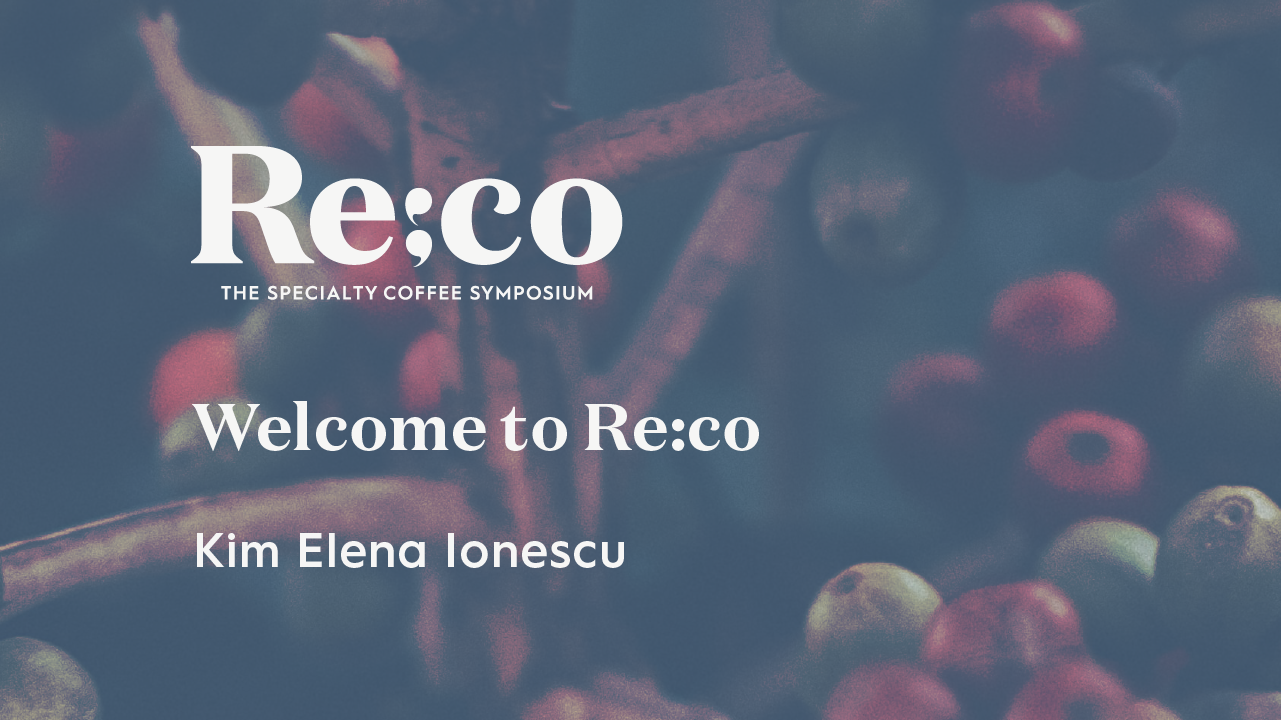


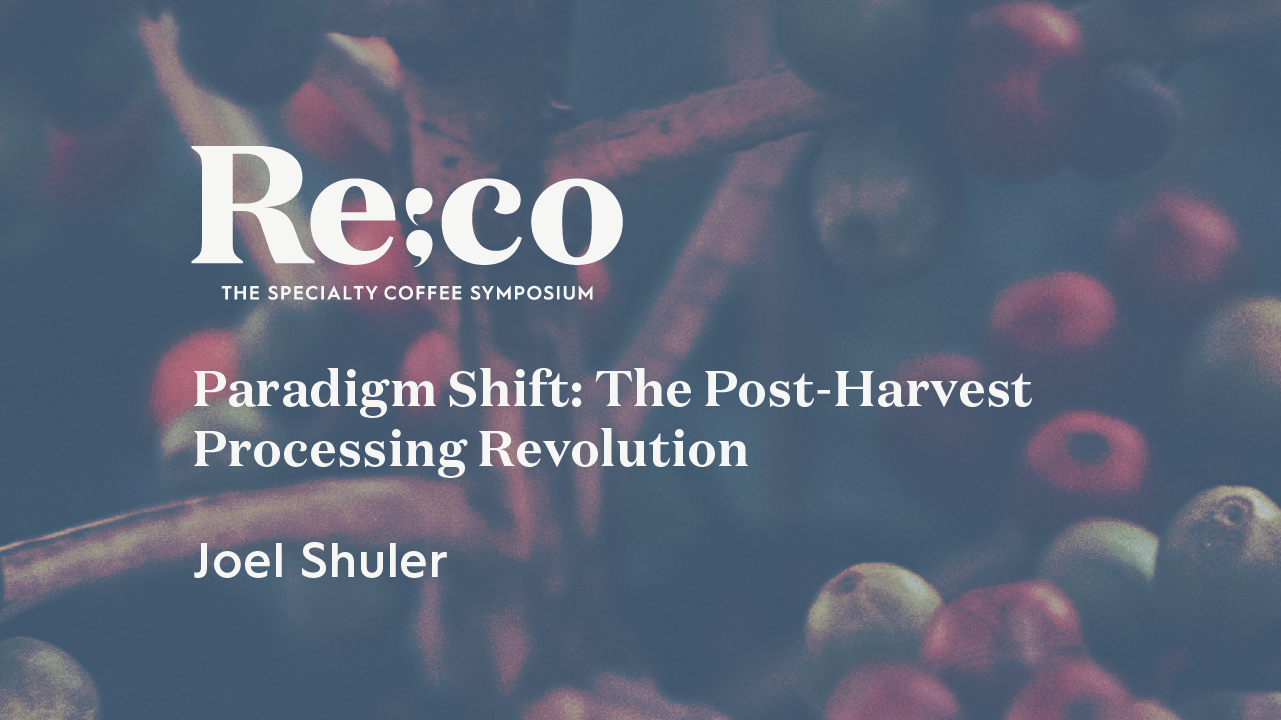
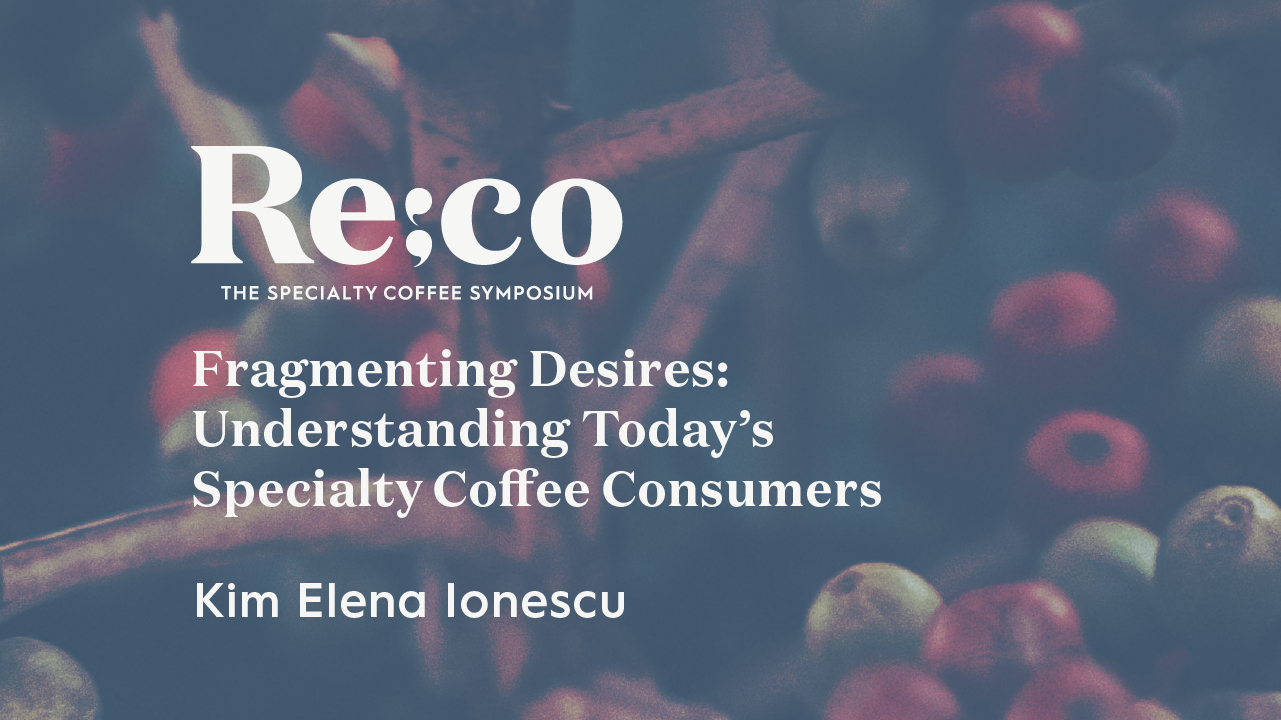
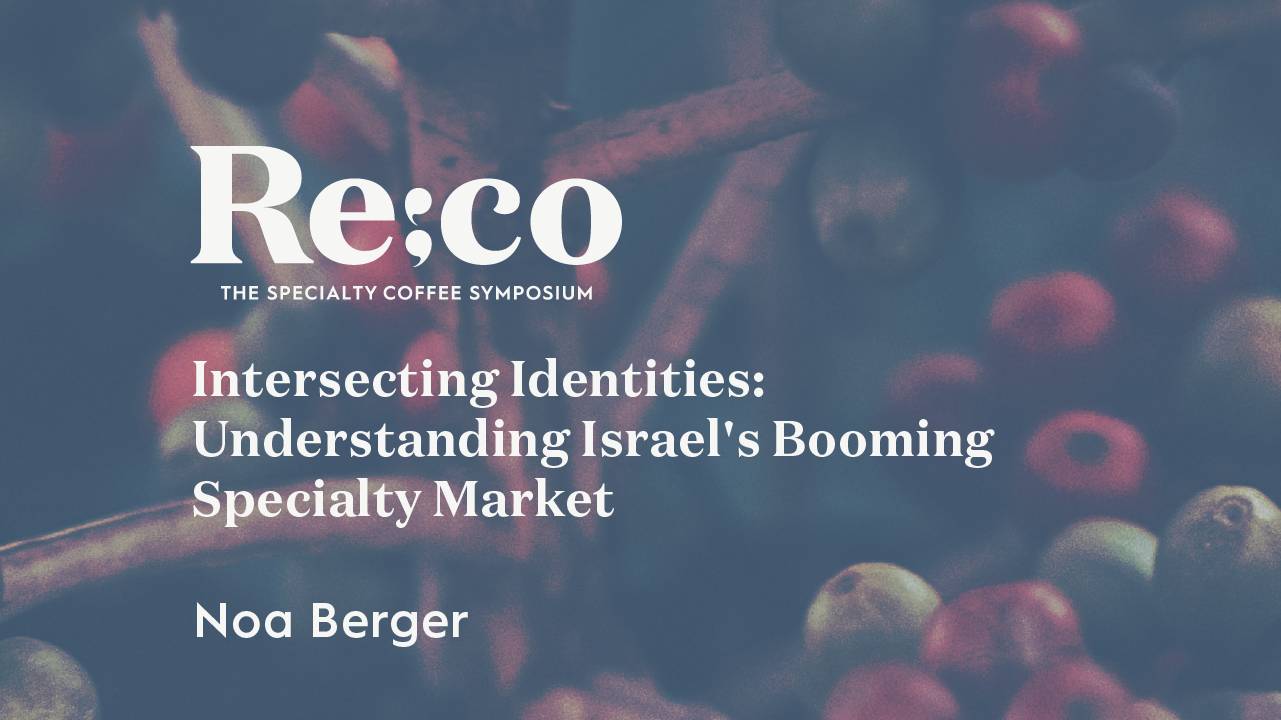



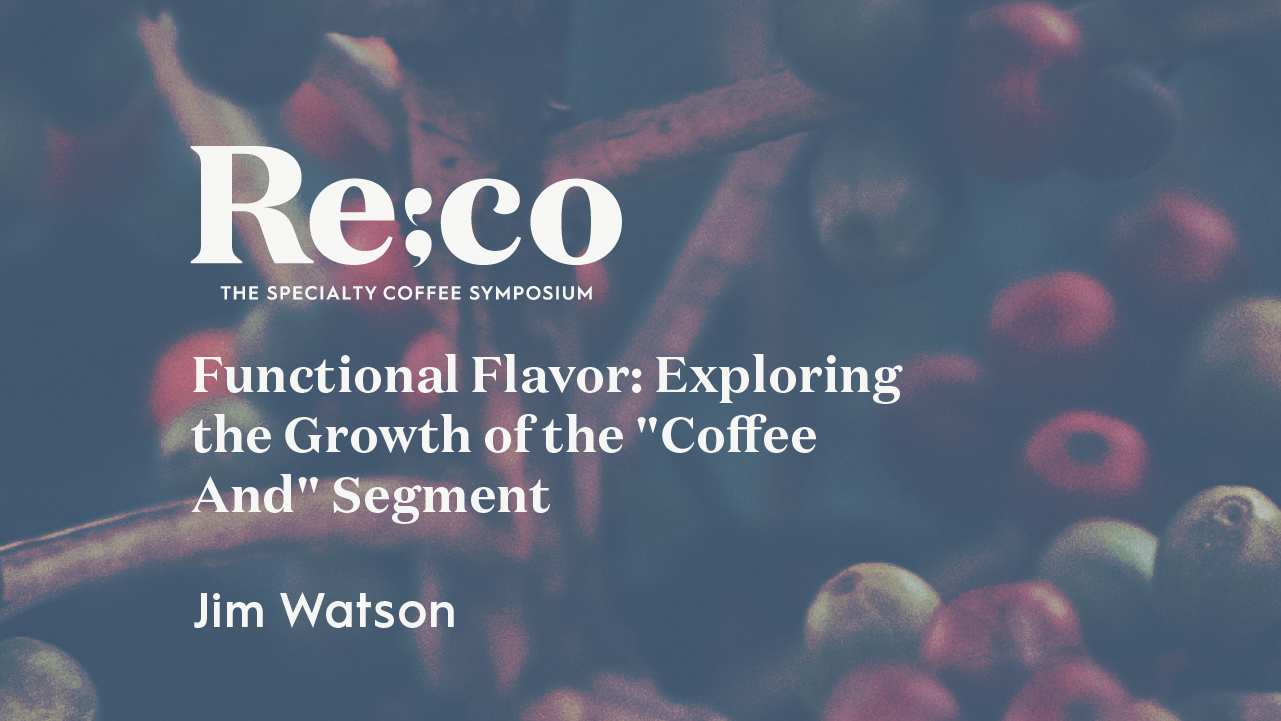



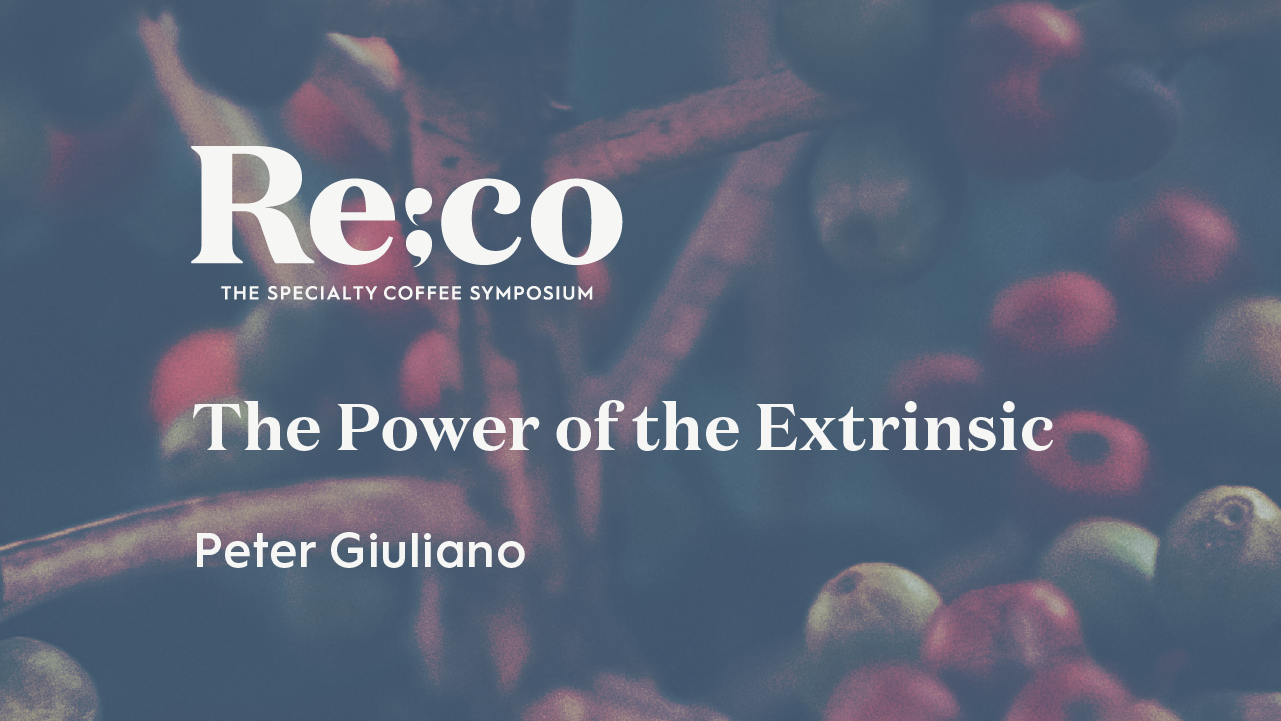
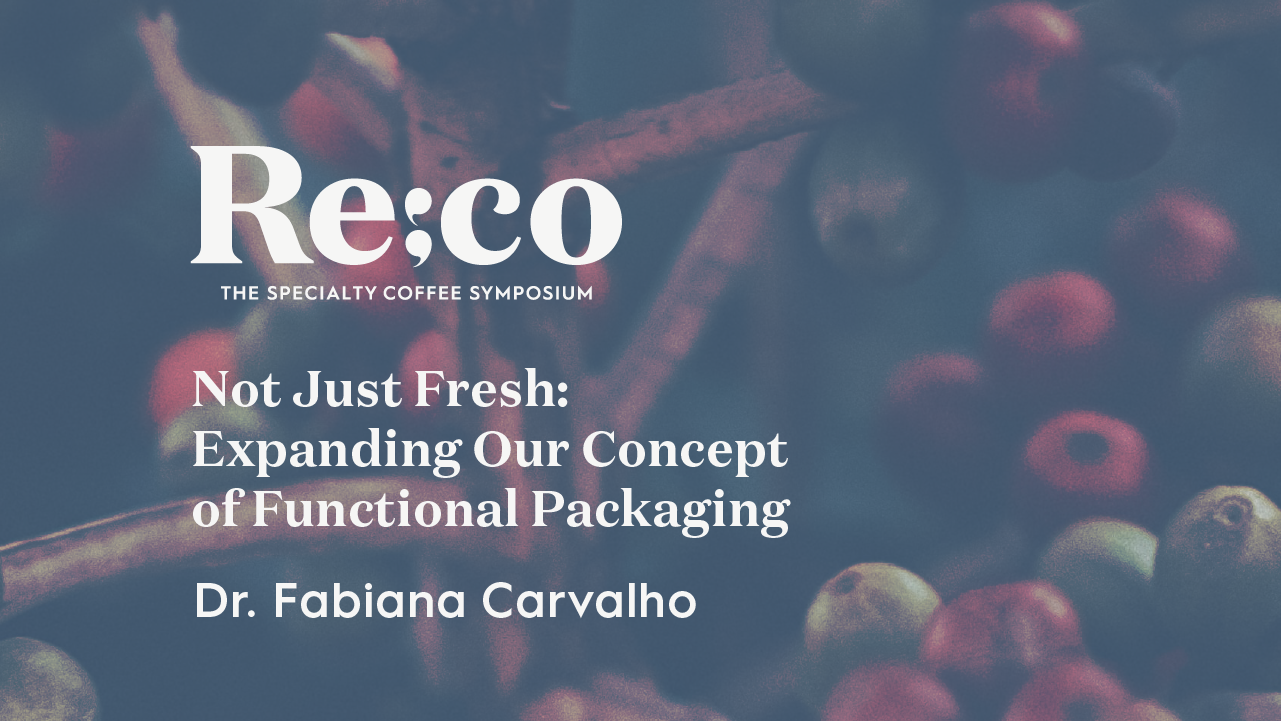





















































Ric always brings together a variety of indicators— economic data, industry insights, and years worth of experience and firsthand knowledge– and weaves it together in a powerful narrative on the risks threatening our industry and possible solutions to them.